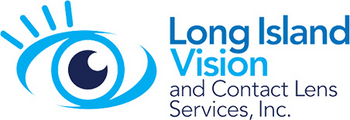VISION THERAPY AT LONG ISLAND VISION AND CONTACT LENS SERVICES
______
You may have 20 20 vision but still have undetected vision problems
Although an individual can successfully pass all screening exams or be able to read a Snell chart from the distance, they can struggle with other problems such as poor focus, eye alignment and coordination problems (including turned eyes or squints), inadequate eye-hand coordination, amblyopia (also known as lazy eye), and other vision disorders that can be effectively addressed through vision therapy.
Vision Therapy can be very effective in the treatment of visual problems related to neurological conditions and traumatic brain injuries. Each vision therapy program is tailored to each patient and their specific needs.
What is Vision Therapy?
Vision Therapy, also known as Developmental Optometry, is a series of individual and personalized supervised in-office and at home reinforcement exercises during a period of weeks or months, depending on the nature and severity of the eye problem.
The exercises are designed to help develop or improve visual skills and abilities, improve visual comfort and efficiency, and improve the communication between the brain and the eyes. Vision Therapy can also be very effective in the treatment of visual problems related to neurological conditions and traumatic brain injuries.
Vision therapy is not only for children, it can be effective for people of all ages.
Contact Vision Therapy Center At Long Island Vision Care to learn how we can help you and your family function better in the day-to-day life with an appropriate Vision Therapy program.
How vision works?
Vision is the process of deriving meaning from what you see. Vision involves:
Visual Acuity
Focusing
Eye Aiming
Eye Coordination
Fixation and Eye Movement Abilities
Eye-Hand Coordination
Visual Form Perception
Symptoms you should look out for:
- Lazy eye, cross-eye
- Double vision
- Difficulty Reading
- Poor classroom performance
- Difficulty staying focused
- Strabismus (where both eyes are not aligned)
- Amblyopia (lazy eye)
- Poor hand-eye coordination
- Constant squinting/head tilting
- Using fingers to read
- Favors one eye over the other
- Poor handwriting
- Headaches or fatigue after reading or computer work
- Rehabilitation for Traumatic Brain Injury (TBI)
Who Can Benefit From Vision Therapy?
Vision Therapy is suitable to individuals of all ages. The brain's neuroplasticity allows it to adapt and change through out one's life. Vision Therapy can help patients with conditions and symptoms related to:
- Amblyopia
- Strabismus
- Convergence Insufficiency
- Traumatic Brain Injury
- Meniere’s Disease
- Cerebral Palsy
- Learning Disability
- Down Syndrome
- Autism
- Developmental Disorders
- ADD/ADHD
- Dyslexia
- Sports Vision Training
How Long Will It Take To See Results With Vision Therapy?
The rate at which patients experience these improvements will vary, but generally progress is seen early in the therapy program and after six months significant results can be achieved, dependant on patient compliance.
What are the outcomes from Vision Therapy?
With successful treatment, patients may find that:
- Learning becomes easier
- Reading level and speed increases
- Time spent on homework decreases
- The ability to follow moving objects improves
- Seeing objects nearby or at a distance improves
- Visualizing mental images becomes easier
